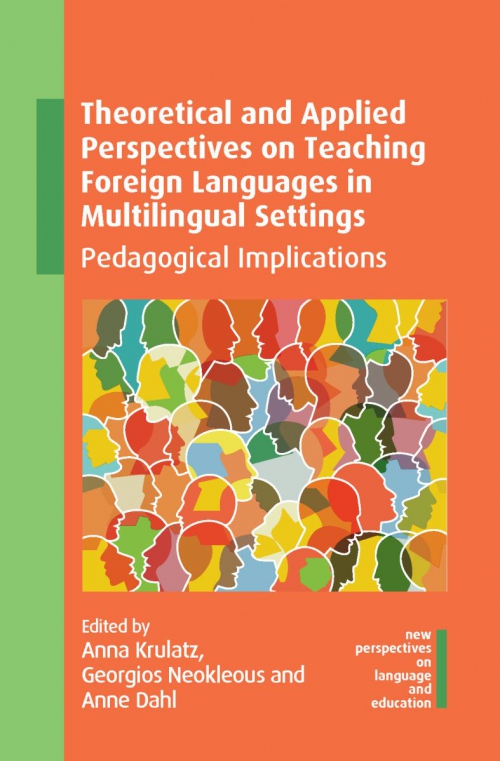- Contributor
- Editors
- Publisher
- Year
- ISBN
- Language
- Nayr Ibrahim
- Anna Krulatz, Georgios Neokleous & Anne Dahl
- Multilingual Matters
- 2022
- 9781788926409
- English
This book promotes linguistically responsive foreign language teaching practices in multilingual contexts by facilitating a dialogue between teachers and researchers. It advances a discussion of how to connect the acquisition of subsequent foreign languages with previous language knowledge to create culturally and linguistically inclusive foreign language classrooms, and how to strengthen the connection between research on multilingualism and foreign language teaching practice. The chapters present new approaches to foreign language instruction in multilingual settings, many of them forged in collaboration between foreign language teachers and researchers of multilingualism. The authors report findings of classroom-based research, including case studies and action research on topics such as the functions and applications of translanguaging in the foreign language classroom, the role of learners’ own languages in teaching additional languages, linguistically and culturally inclusive foreign language pedagogies, and teacher and learner attitudes to multilingual teaching approaches.
This chapter argues for a reconceptualization of language education where linguistically responsive teaching and learning cut across disciplines, language barriers, and educational models. Societies in the 21st century have experienced an unprecedented influx of people from diverse cultural and linguistic backgrounds as a result of globalization. In view of these developments, policymakers, educational professionals, and university researchers are obliged to re-examine the monolingual view of education and create language- and identity-safe equitable learning spaces. This chapter offers a concrete framework for demonolingualizing education in order to mainstream multilingualism in education and thus acknowledge and value learners’ multilingual voices.
- Reviews


